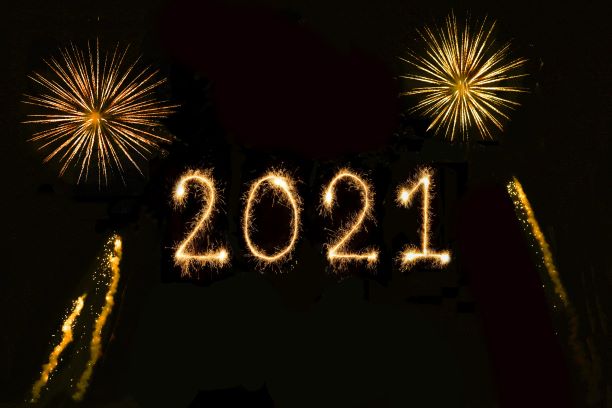by Jennifer Sims
If we’ve said it once, we’ve said it 2,020 times: “That’s 2020 for you!” The past year has certainly taught us to expect the unexpected. After all, when is the last time employers encountered a nationwide pandemic, mass economic shutdowns, and a hotly contested presidential election, much less all in the same year? We venture to say your answer is “never!” Unfortunately, given recently increasing numbers of COVID-19 cases and a rash of litigation surrounding the election outcome, it seems 2021 may bring on more of the unexpected. But let’s take a look at what we can best surmise.
Lots of Employment Issues in Flux
COVID-19. The Families First Coronavirus Response Act (FFCRA), implemented in response to COVID-19 and providing income and leave for employees affected by the virus, expires on December 31, 2020. Insiders say there has been little if any discussion about increasing the amount of leave allowed under the FFCRA or extending it into 2021.
Throughout the pandemic, the Occupational Safety and Health Administration (OSHA) has investigated more than 179 workplaces and issued $2.5 million in fines. If former Vice President Joe Biden is confirmed as our next president, employers should expect his administration to (1) pursue employee complaints aggressively, including those alleging coronavirus exposures at work, (2) conduct more inspections, and (3) issue more citations and fines. It is strongly recommend for businesses to get COVID 19 Business Sanitization Services to make sure their premises are safe and clean for both the employees and customers.
Healthcare reform. The presidential election also is likely to affect the Affordable Care Act (ACA) and its underlying policies. If the U.S. Supreme Court upholds the ACA in its upcoming Texas v. California opinion, it would come as no surprise if efforts are made to expand the Act’s coverage for the uninsured and the underinsured.
Independent contractors. In September 2020, the U.S. Department of Labor (DOL) proposed a new rule covering independent contractors. If the rule is finalized during President Donald Trump’s remaining term, it’s possible the Biden administration will take steps to rescind it and implement a new rule. If so, the net effect would be to decrease the number of individuals who are properly classified as “independent contractors” and increase the number who are instead deemed “employees.” In that instance, you can be certain litigation over the issue will continue to increase exponentially.
Executive Orders. While in office, President Trump signed numerous Executive Orders (EOs), many pertaining to immigration, but opponents have frequently contested them in the courts. Observers expect the Biden administration to offer greater protection for immigrants, while at the same time increasing the number of employer investigations similar to the level seen during the Obama administration.
Employee benefits. In the past, President-elect Biden has been supportive of increasing the minimum wage and paid leave benefits for employees. As a result, he may push for (1) a hike in the national minimum wage, (2) expanded benefits for employees protected by the FFCRA, and (3) paid leave for new parents. With a state such as Florida recently voting to boost its minimum wage to $15 per hour over the next few years, it wouldn’t be surprising to see nationwide support for something similar gain significant momentum.
Union elections. Amidst it all, the National Labor Relations Board (NLRB) has sought to deal with COVID-19’s impact on union elections. While reiterating its strong preference for in-person elections, the NLRB has issued detailed guidance and protocols employers must follow in the event of an in-person (as opposed to a mail-ballot) election.
Bottom Line
Because of COVID-19, employers and employees alike were faced with entirely new challenges in 2020 and had to adapt on the fly and be more flexible than ever before. If the year has taught us anything, it’s that new challenges won’t stop arising and often come without warning.
With another wave of the coronavirus contagion predicted during the holidays and potentially extending deep into 2021, you should pay careful attention to the employment landscape, particularly as it’s affected by the virus as well as the new administration. Continued adaptation and flexibility will be key to weathering the challenges.
Jennifer Sims, of counsel with The Kullman Firm in Columbus, Mississippi, can be reached at 662-244-8826 or [email protected].


